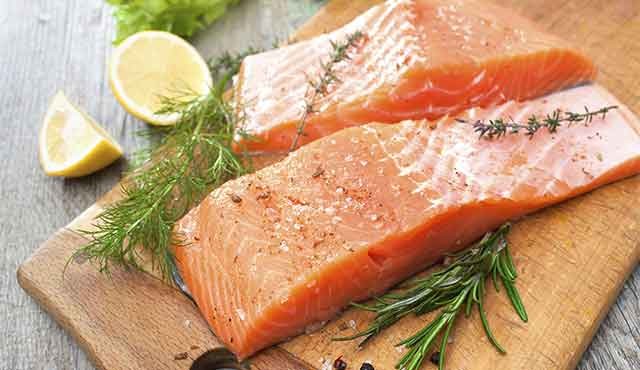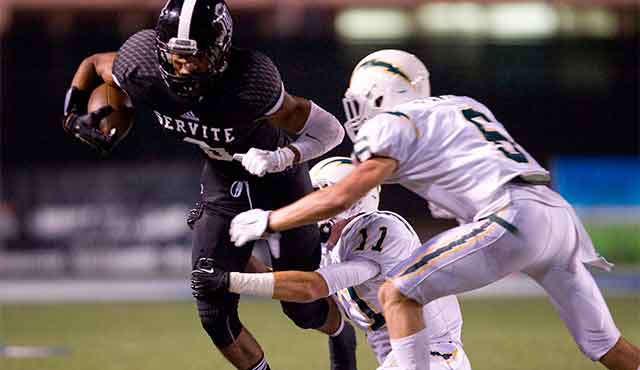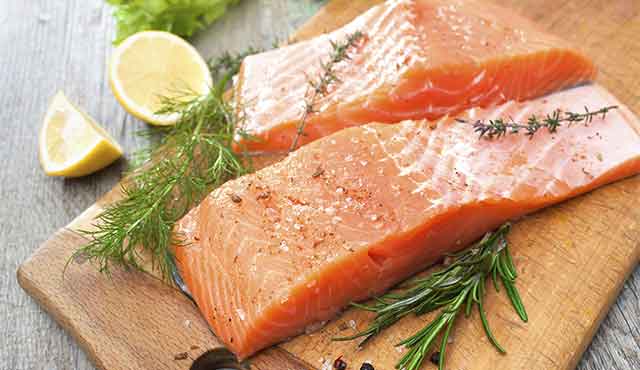It’s not uncommon for young athletes to think that playing their chosen sport is enough to keep their growing bodies healthy. But several schools within the Trinity League are taking an active approach to educating their student-athletes on how food choices can play a much larger role than the weight room when it comes to performance on the field or the court.
“Trying to get kids to comprehend how important nutrition is, is one of the hardest things to do, even if they are athletes,” says Santa Margarita Catholic High School’s Director of Strength and Conditioning, Vince Garcia.
The schools are utilizing strength and conditioning coaches like Garcia to work alongside the coaching staffs to provide their athletes with resources and education on the topic.

“I tell the kids, you wouldn’t put 87 [octane gasoline] in a Lamborghini, would you? says Servite High School’s Head Strength and Conditioning Coach, Matt Chandler. “We try to give real-world applications on why eating the right things is so important.”
The coaches speak with players and their parents about nutritional concepts, such as the importance of eating three healthy meals daily, supplemented with two to three healthy snacks. Some also bring in nutritionists to outline healthy food options, as well as specific suggestions for pre-game meals.
“Spending time working out and lifting weights will not matter if the kids aren’t putting the right foods into their bodies,” says Garcia.
Beyond the food choices, coaches are spending as much time talking with the kids about hydration, and how skipping the sodas and sugary drinks in favor of water will prevent dehydration and improve performance.
“We explain to the kids the benefits of drinking water and staying away from the sodas and energy drinks,” says JSerra Catholic High School’s Director of Sports Medicine, Kayla Gradillas. “Even drinks like Gatorade should be limited to use during recovery.”
For some kids, the message is getting through.
Servite varsity football player Kevin Hawkins’ unhealthy food choices were affecting his performance.
“I was more interested in eating the bad food than I was in getting serious about eating healthy,” says the 17-year old senior. “After my sophomore year, I became highly motivated. I wanted to make varsity and I wanted to not just play the part, but look the part.”
Hawkins received input from the coaches at Servite, made changes to his eating habits in the off season and saw dramatic results, including making the varsity team.
“I hardly drank any water, so that was a big change. I carry water with me all the time now,” says Hawkins. “No more sodas or fast food, but more lean meats and vegetables. The changes made me look completely different and I have more energy on the field.”
Hawkins’ teammate and multi-sport athlete for the Friars, Nicholas Ramirez, made similar changes and has seen similar results.
“Changing my eating habits changed my view on being an athlete,” says Ramirez. “I thought just working out would be enough and I didn’t think about the nutritional aspect. Now I’m more energized and can keep my stamina up.”
Some schools also are addressing the food choices offered on campus, aligning them with the healthy eating that is preached by the coaches. Servite’s Fresh Grill, under the direction of Coach Chandler, has created a “coaches’ training table” approach, offering a salad bar and lower-fat food choices.
Freshman JSerra soccer player Sam Guinane says his campus is taking a similar approach.
“They have a full salad bar [at JSerra] and offer healthy sandwiches and drinks, chicken and even fish dishes.”
And for Sam’s father, Tony, the team approach between the school, coaches and parents in guiding the athletes on this topic is important.
“We make sure to provide good food choices at home too,” says Tony Guinane. “The kids follow our example and it’s great to be able to partner with the school in this area.”
The coaches are aware as well of the pressures on kids to go to the other extreme, as discussions regarding appearance and supplements can come into play for both male and female athletes.
“Their bodies are still growing and changing,” says Chandler, “so we stress the concept that the body will operate best with real food, and that supplements aren’t necessary.”
Overall, the schools aim to equip the athletes for healthy eating not only during their high school years, but after graduation and beyond.
“We explain to the kids the differences between how their bodies need food now and when they’re older, when they’re no longer in the sport,” says Gradillas. “It’s important to talk nutrition for a lifetime.”


